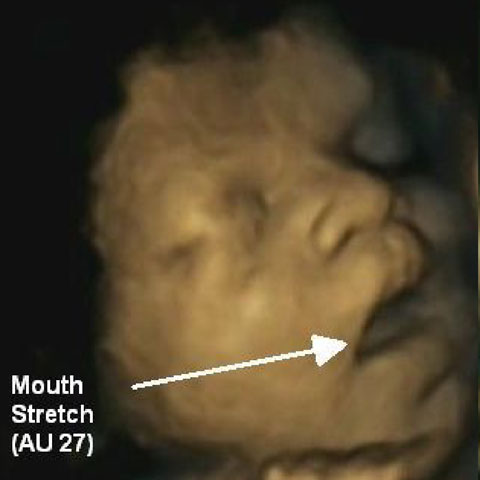Fetuses yawn in the womb according to new research
11/22/2012 00:00:00

The 4D scans of 15 healthy fetuses, by Lancaster and Durham Universities, also suggest that yawning is a developmental process which could potentially give doctors another index of a fetus’ health.
The study is published in the international academic journal, PLOS ONE.
While some researchers have suggested that fetuses yawn, others have disagreed and claim it is simple mouth opening.
But the new research clearly distinguished ‘yawning’ from ‘non-yawn mouth opening’ based on the duration of mouth opening. The researchers did this by using the 4D video footage to closely examine all events where a mouth stretch occurred in the fetus.
Using their newly developed criteria, the research team found that over half of the mouth openings observed in the study were classed as yawns.
The study was carried out on eight female and seven male foetuses from 24 to 36 weeks gestation. The researchers found that yawning declined from 28 weeks and that there was no significant difference between boys and girls in yawning frequency.
Although the function and importance of yawning is still unknown, the study findings suggest that yawning could be linked to fetal development, and as such could provide a further medical indication of the health of the unborn baby.
Professor Brian Francis of Lancaster University’s Department of Maths and Statistics said: “The use of modern statistical approaches to such longitudinal data has identified the surprising result that, although each fetus has its own personal yawn rate at 24 weeks, there is a strong decline to nearly zero by 36 weeks gestation. There was also no significant difference between boys and girls in yawning frequency or rate of yawning decline.”
Lead researcher Dr Nadja Reissland, of Durham University’s Department of Psychology, continued: “The results of this study demonstrate that yawning can be observed in healthy fetuses and extends previous work on fetal yawning.
“Unlike us, fetuses do not yawn contagiously, nor do they yawn because they are sleepy. Instead, the frequency of yawning in the womb may be linked to the maturing of the brain early in gestation.
She added that yawning could be related to central nervous system maturation but further research involving mother and fetus would be required to examine this theory.